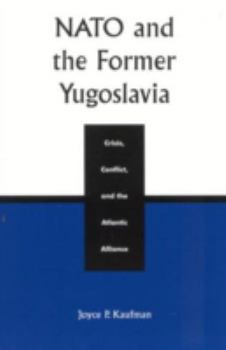NATO and the Former Yugoslavia: Crisis, Conflict, and the Atlantic Alliance
Select Format
Select Condition 
Book Overview
Focusing on NATO's continued crisis of identity, Joyce P. Kaufman argues that the conflicts in Croatia, Bosnia-Herzegovina, and Kosovo have proven to be critical to an alliance that has not been able to define its roles and missions in the post-Cold War world. While, on the one hand, NATO was enlarging by inviting former adversaries in Central and Eastern Europe and the former Soviet Union to join, on the other hand it has been woefully unprepared to deal with the ethnic conflicts that erupted on its borders and that could undermine the peace and stability of Europe. The author contends that the conflicts in the former Yugoslavia have potentially threatened the essence of NATO by forcing the alliance to take on the new role of peacekeeper without adequately allowing the members to examine the role the alliance wants to or should play in a largely postcommunist world. Despite ongoing discussion in NATO ministerial summits, the alliance has made little progress to date and public questions about the role and even the viability of NATO after the Cold War continue to grow. The inability to address these issues leaves NATO facing a number of pressing questions that this book tries to answer: What role can and should the alliance play in the future? And why have the ongoing conflicts in the Balkans proven to be a challenge that the alliance has been unwilling or unable to resolve?
Format:Paperback
Language:English
ISBN:0742510220
ISBN13:9780742510227
Release Date:May 2002
Publisher:Rowman & Littlefield Publishers
Length:256 Pages
Weight:0.80 lbs.
Dimensions:0.6" x 6.0" x 9.0"
Related Subjects
HistoryCustomer Reviews
0 rating





